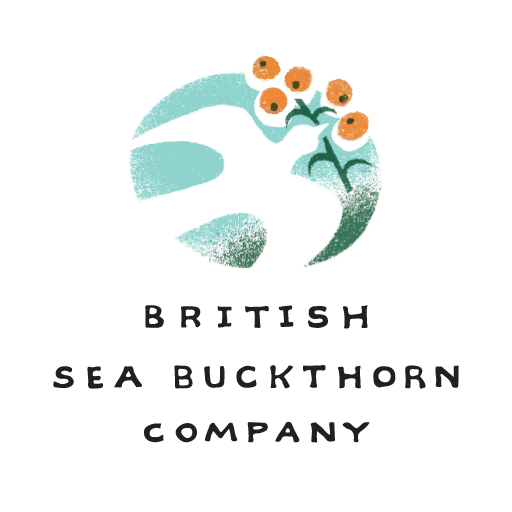The past is for learning from; the present to act on that knowledge and the future tests the actions taken.
The 22 German, Latvian, Finnish and Siberian varieties of sea buckthorn here at Devereux farm have tested which are the ones that we believe in for the future. 2023 will see the start of planting new orchards.
Over the past ten years, experience is what drives our ideas. In 2014 we had a shocking infection in the young plants impacting on 40% of the Siberian plants. As the plants matured the problem has not re-occured. In 2017 these plants were full of berries, but gradual adaptation of these plants to our climate shifted their wind pollination into March. The weather in march being wet and windy has neutralised this process resulting in only a small crop in 2022.
Birds were not a problem for that 2017 crop. But as years have gone by and local wildlife recognised this new feedstock in the landscape they have grown to be a bigger issue year by year. When the crop is large, we can afford to share it with the birds. But when the crop is small they take every berry. In 2022, the high temperatures and extended drought also drove the birds to want to eat the berries even before they were ripe. So looking forward to the future if we are going to be successful we have to manage this problem.
With summer 2022 taking temperatures to a UK record 40 deg C. climate change is a factor that will impact on growing sea buckthorn. It is resilient and grows in extreme conditions, but we should not look at all sea buckthorn as being the same. Across the world there are different species and subspecies that have adapted to these conditions. Here at Devereux farm our clay soils are not ideal. In winter these soils become waterlogged, particularly as with climate change heavy rain events are becoming the norm.
Summer 2022 with its long dry drought resulted in a small crop of smaller berries, which the birds decimated. We started planting sea buckthorn in 2009. We now have enough experience for the next phase of our sea buckthorn project. The loss of the 2022 crop triggered the decision that now is the time to select the varieties that have potential and replant in orchards designed to optimise pollination; reduce bird damage; accomodate the impacts of drought. Solving these issues will deliver consistent crops for our customers.
What does all this mean to our customers?
Losing almost 90% of the 2022 crop means our freezers are almost empty with the last of our frozen berries to be sold-out this month.
The new plants that we use to replant our organic orchards will take four years to mature to fruit.
There will be a small crop coming from the plants we are retaining available from harvest each year, but the supply will be limited until the new plants develop.
In order to be able to carry on supplying berries through the year after our home grown have run out it seemed to make sense to source berries from our sea buckthorn plant suppliers. These would be organic and of the same varieties as we have been growing and will be growing in the future. So the sad issue that last summer’s crop was a disaster, will not mean that we cannot continue to supply customers with organic whole sea buckthorn berry. I hope that you will appreciate this situation. We will have new crop berries available from our own plants in mid July.
In the meantime there is a lot more happening at Devereux farm. Living next to the Hamford water National Nature Reserve the farm has long been managed to provide habitat for wildlife. In fact over the past year, bird counts have logged 198 different species. The habitat areas are managed in agreement with Natural England, with our arable crops grown within them. As we look at sea buckthorn with a eye to climate change and its impact on the future, so we also see the farm needing to change.
Although it is a busy time ahead with the sea buckthorn, the decision has also been taken to convert the whole of the rest of the farm to organic as well. This brings the whole ethos of what we do into one.
In writing this blog I am aware that I stopped blogging a while back, but with all this change it seems the right time to start and deliver a weekly update on what is going on. It is truly going to be a busy year as there has just been announced the ninth annual conference of the International Sea buckthorn Association is to be held in Thessaloniki, Greece in May. Greece is the country from which the origin name of sea buckthorn (Hippophae) comes – confirming its 2000 year old history and the ongoing appreciation of its natural health benefits.
